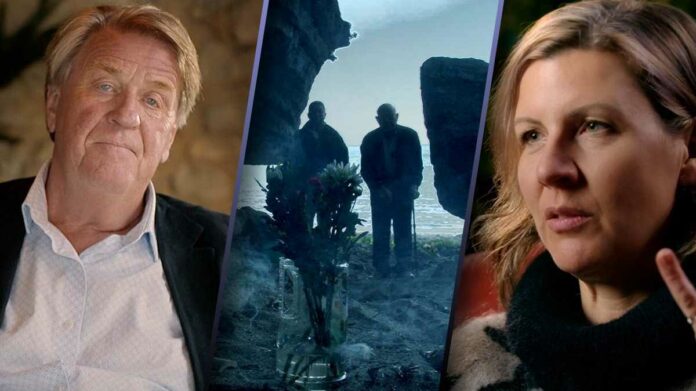In the Netflix documentary film Missing: The Lucie Blackman Case, the horrifying disappearance of a 21-year-old British girl, Lucie Blackman, unfolds. Lucie relocated to Japan and started working as a hostess at a restaurant in Tokyo, but after merely three months, she mysteriously disappeared. Through an extensive investigation into the disappearance of Lucie Blackman, the shocking revelation of a stone-cold murderer and sexual predator lurking in the streets of Japan surfaced.
In this documentary, the account of the events surrounding Lucie Blackman’s disappearance is discussed and revisited, featuring a grieving father, Tim Blackman, who did everything in his power to bring his daughter back but found himself entangled in a feud with the Tokyo police. This nearly 23-year-old murder case was once major news, but only a few people outside these countries —the UK and Japan—are aware of it. However, this is where Netflix takes the initiative to introduce everyone from every corner of the world to these chilling crimes and make them aware of the dark side of the world. By presenting these gripping and haunting crime stories, Netflix seeks to bring attention to cases that might otherwise remain forgotten or unknown to global audiences.
Adventurous young Lucie Blackman, 21 years old, used to travel a lot. Enamored by Japan’s culture and magnificence, she decided to take up a job as a hostess at a restaurant called Casablanca in Roppongi, Tokyo. In Japan, hostesses are not mistresses or the ones who run brothels; they work at restaurants where they welcome and entertain guests and may accompany customers on paid dates. For many women in Japan, this job is not demeaning; some even enjoy it, as they view it as going to a party and meeting new people for a living. Unfortunately, being a woman anywhere in the world often means facing the tragic fate of encountering disrespectful and inappropriate behavior from certain men. There are individuals who disregard a woman’s right to say “No” and persist in pursuing sexual or romantic relationships despite her refusal. Such perverted men can be found lurking around the streets, ignoring the value of a woman’s boundaries in order to satisfy their egos. In some cases, when women try to assert their rejection, it can lead to even more dire consequences, trapping them further in these lustful snares. The same thing might have happened in the case of Lucie Blackman because not all of the men in Japan treated the hostesses with the respect they deserved.
On July 1, 2000, Lucie Blackman disappeared, and a subsequent investigation to find her whereabouts was launched. The Tokyo police initially didn’t take it seriously, speculating that Lucie might have run away with her boyfriend because it was common for the hostesses to do so. However, the situation changed when a mysterious caller, named Akira Takagi, informed the police that Lucie had joined a cult. Lucie’s father, Tim, refuted this claim, knowing his daughter’s skepticism in such things, and thus he couldn’t believe she would fall into the trap of a cult. In response to the distressing news, Tim and Lucie’s younger sister, Sophie, hurriedly traveled from the UK to Tokyo to actively search for her.
Putting in every effort, Tim and Sophie held press conferences, posted pictures of Lucie all over Tokyo’s streets by going against the rules and regulations of Japanese streets, and announced rewards for any information leading to her return. Unfortunately, all their efforts were in vain, as Lucie Blackman hadn’t been just kidnapped; she was drugged, sexually assaulted, and eventually murdered. As the investigation progressed, the Tokyo police encountered misleading evidence that could have sent them down the wrong path. Despite the challenges, a thorough investigation eventually uncovered some heartbreaking discoveries. It was revealed that Lucie was not the only victim; numerous hostesses had faced similar fates, never making it home.
The police finally caught an interesting lead involving a property handler named Joji Obara, a young man responsible for abducting the young hostesses, drugging them, and raping them. Obara was a sexual predator who had been roaming freely in Japan until he was taken into custody for questioning regarding Lucie Blackman. However, he vehemently denied any involvement, despite the strong evidence against him. The film subsequently delves deeper into the revelation of many underlying truths behind Obara’s horrifying activities, as well as the dead body of Lucie Blackman.
We’ve seen numerous documentaries based on missing persons, such as “Abducted in Plain Sight,” and docu-fiction like “Missing Dead or Alive” and “The Disappearance of Madeleine McCann.” These documentaries are known for bombarding viewers with information and employing gripping portrayals to hold tension and engage the audience. However, this particular documentary about Lucie Blackman’s disappearance seems to lack that captivating approach.
Instead of focusing on the chilling crimes of Joji Obara, the film mostly talked about the feud between the Tokyo police and Tim Blackman. The different investigative approaches of the police and Tim led to the investigators believing that Tim was using his charisma to stir up media attention about the case, which raised questions about the Japanese police department. However, Tim was furious because he was the one who had lost his daughter, and he believed he had every right to do whatever it took to bring her back.
As the documentary progressed, it shifted its focus away from Obara and delved more into the aftermath of Lucie’s disappearance and the investigation. Some viewers may have found this approach a bit tedious for telling such a horrifying story. The documentary could have emphasized more on Obara’s crimes and the danger posed to the hostesses, making the narrative more compelling and impactful.
Overall, the documentary missed an opportunity to fully explore the chilling nature of Obara’s actions and the terrifying situation that the hostesses faced. Instead, it centered on the conflicting perspectives of Tim Blackman and the Tokyo police, which might have overshadowed the gravity of the case and its impact on the victims and their families.

